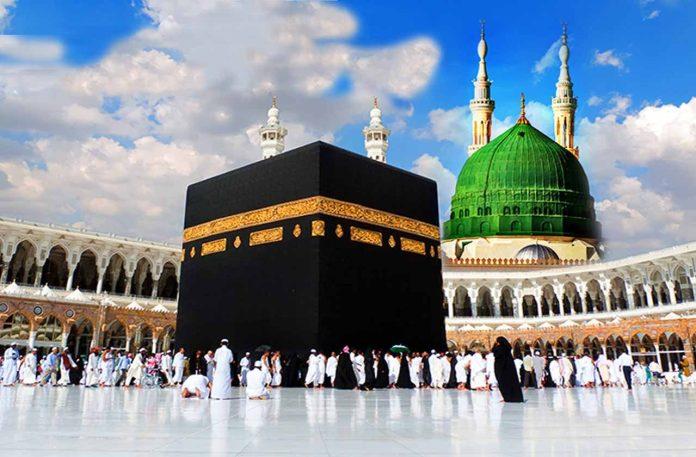The Islamic or Hijri calendar is dependent on the location and phases of the moon, and it has twelve months. All the Islamic months start with the sighting of the new moon and last between 29 and 30 days. The lunar calendar evolves over time, and each year, the position of each month differs from the last year. An Islamic year has no seasons and is approximately 10 days shorter than a solar year.
Moreover, each month in the Islamic calendar has its own significance and also represents a great & specific meaning. Almost every month has a mandatory event or a festivity that allows Muslims to earn a lot more blessings by doing more good deeds.
Islamic Travel offers All-inclusive Umrah Packages. Also, we continuously strive to provide various Umrah packages including a lot more facilities. Performing Umrah in this sacred month will be a great source of making more supplications and getting more rewards from Allah Almighty.
Table Of Contents:
Must-Know All the Islamic Months – Their Meanings & Significance!
- Muharram – A Month Dedicated To Martyrs
- Safar Ul-Muzaffar – The 2nd Month Of Islamic Year
- Rabi Ul-Awwal – Hijrah’s Spiritual Month
- Rabi Ul-Thani – The 4th Precious month of the Islamic calendar
- Jamadi-Ul-Awwal – The Month Of The Ghazwah-E -Moota
- Jamadi Ul-Thani – The 6th Islamic Month
- Rajab – The Month Of Forgiveness
- Shabaan – The Month Of Lailatul-Barat
- Ramadan – The Holiest Month In Islam
- Shawwal – Invokes Eid Celebrations
- Dhul Qadah – Hazrat Ibrahim’s Birthday Month
- Dhul Hijjah – The Spiritual Month Of Hajj
Wrapping Up
Must-Know All the Islamic Months – Their Meanings & Significance!
An in-depth overview of the Islamic months and the significance they hold for Muslims is here for you;
1. Muharram – A Month Dedicated To Martyrs:
For Muslims, the month of Muharram marks the beginning of the Islamic new year. This month’s name means “forbidden” in the strictest sense. During this time Muslims are forbidden from engaging in any kind of battles & fighting. The Prophet Mohammad (ﷺ) once said that Muharram is the second-best month after Ramadan in terms of fasting, however, it is not compulsory.
2. Safar Ul-Muzaffar – The 2nd Month Of Islamic Year:
Safar, the 2nd lunar month, is known as the ‘void month’ because of its name. The month is said to be named after the pre-Islamic Arabs, who used to leave their houses empty while searching for food during this time. However, Arabs in Safar looted their opponents’ homes after defeating them in battles and also left nothing behind, according to another account.
3. Rabi Ul-Awwal – Hijrah’s Spiritual Month:
The 3rd month of the Islamic year has special meaning for Muslims all over the world because it is when Allah Almighty chose to bless us with the birth of Our Beloved Prophet Mohammad (ﷺ). In addition, this is also the month in which the Prophet performed Hijrah and left this world. The correct & literal meaning of Rabi ul-Awwal is “1st spring”. However, because the Islamic calendar changes every year, it is obvious that the reference here isn’t to the real spring, but to the happiness & excitement associated with the season.
4. Rabi Ul-Thani – The 4th Precious month of the Islamic calendar:
Rabi ul-Thani, the Arabic name, refers to the final spring. Reciting the Quran and doing Nawafil prayers is encouraged during this month, but no indication doing so offers exceptional blessings. Also, this month is a good time to do charity and good deeds in honor of loved ones who have passed away.
5. Jamadi-Ul-Awwal – The Month Of The Ghazwah-E -Moota:
Islamic calendar’s 5th-month Jamadi ul-Awwal means “the first month of parched land” and refers to the pre-Islamic summer season. According to another narrative, the water would freeze up during this month, which is why the significance here is associated with the verb ‘to freeze.’ This is also the month in which Hazrat Khadija (RA) was married to Prophet Mohammad (ﷺ).
6. Jamadi Ul-Thani – The 6th Islamic Month:
The sixth month of the Hijri Calendar signifies the second month of the dry and arid land and also refers to the land devoid of rain. Some Muslims think that this month’s name comes from the verb ‘to freeze,’ because water would freeze at this period. Jumada al-Thani, which is sometimes referred to as Jumada al-Akhirah, lasts for 29.5 days.
7. Rajab – The Month Of Forgiveness:
Rajab is a holy month in Islam, so fighting and battles are strictly prohibited during this month. Shia Muslims consider this month to be particularly sacred due to the Shia Muslims’ attachment to Hazrat Ali (RA). Muslims believe that during this month, one’s actions have a significant impact on the balancing scales and that he or she should spend time saying prayers. The 27th day of Rajab is auspicious in Islam because it was the day when the Prophet Mohammad (ﷺ) went to heaven.
8. Shabaan – The Month Of Lailatul-Barat:
During this time of year, Arabs used to scatter in quest of water, hence the month’s Arabic name is Shaaban, which means to scatter. This month is also known as the month of the Holy Prophet Mohammad (ﷺ). Fasting on Thursdays is suggested during Shabaan because it is stated that Allah rewards the person who fasts 20 worldly wishes and 20 wishes for the afterlife. Muslims commemorate the birth of Ali Akbar Ibn Hussain (RA) on the 11th day of the Islamic month of Shabaan. The 15th day of the month is Shab-e-Barat or Lailatul-Barat, which is also known as Mohammad Mahdi’s birthday.
9. Ramadan – The Holiest Month In Islam:
This month provides Muslims with an excellent opportunity to strengthen their faith, ask forgiveness for their sins, and also purify their mind, body, and soul. People take a break from their daily activities and recite prayers as well as perform righteous deeds during this month. During Ramadan, Muslims fast from pre-dawn to sunset and perform charitable acts.
10. Shawwal – Invokes Eid Celebrations:
Ramadan ends with the Muslim festival of Eid-ul-Fitr, which is celebrated at the start of this month. Some people fast during this time of the month because they believe it is a Sunnah (obligatory) act. As a reward for observing the fasts during Ramadan, all misdeeds are forgiven in Shawwal.
11. Dhul Qadah – Hazrat Ibrahim’s Birthday Month:
The Islamic calendar’s 11th month is one of 4 sacred months during which no battles were permissible. Its name refers to a sitting or ceasefire, and it is the time that people prepare for the annual hajj pilgrimage. There are many rewards for doing good deeds during Dhul Qadah, even if the burden of committed sins is much heavier to bear. Hazrat Ibrahim (AS) was born on 25th Dhul Qadah.
12. Dhul Hijjah – The Spiritual Month Of Hajj:
During the last month of the Islamic year, many Muslims make the journey to Makkah to perform Hajj. People from all over the world make pilgrimages to the holy Kaaba every year as part of their religious obligations under Islam’s five pillars. For Muslims, the first ten days of Dhul Hijjah are the most auspicious & virtuous. There are two rewarding deeds one should practice during this month to please Allah Almighty: spending time in the masjid and making supplications (dua). The 9th day of Dhul Hijjah is known as Arafah because fasting on this day purifies the sins committed in this lifetime.
Wrapping Up:
Hence, each month in the Islamic calendar is highly significant and therefore according to the history of the Religion Islam and the beliefs of the Muslim people in some way.




